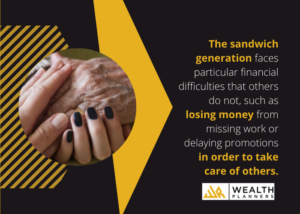After years of building a relationship with your financial advisor, it can feel like losing a close friend or trusted ally if that advisor suddenly decides to retire or sell their practice. Especially if they do so without notice to their clients.
Many advisors will retire soon
A new report issued by Cerulli found that 37% of percent of financial advisors, representing 40% of total industry assets under care, are expected to retire in the next decade. With this in mind, many investors will face a transition to a new advisor in the coming years. But the same study showed that one in four advisors planning to retire or sell their practice are unsure of their succession plan. So, where does that leave their clients? And what’s the proper way to make sure clients are cared for after their advisor is gone?
What good succession planning looks like
Before the first ink hits the paper to start the process of selling a practice or setting up retirement, advisors should notify their clients that the decision has been made to step away from the business. This gives clients an opportunity to start thinking about their own future plans – whether that means transitioning to new practice ownership or finding a different advisor altogether.
One important consideration for both clients and the advisor is whether a potential new advisor or prospective purchaser of the practice takes the same approach to investment. Active traders, or “stock pickers” may not be a great match for investors who prefer more of a set-it-and-forget-it approach and visa versa. There’s also the personality side of the equation that can make or break the chemistry of the client-advisor relationship. And even if the new advisor is a friend or colleague of the current advisor, that doesn’t guarantee a good fit for all clients.
The age of the new party should also be considered. Typically, a younger advisor is a better choice than one who is also nearing retirement age. From the client perspective, facing multiple transitions over a relatively short term signals practice instability and a poor experience, likely leading to a significant drop in client retention for the practice.
Moving forward
At the end of the day, it’s important to understand that most advisors will take care of their clients when the time comes to move on. So even if you’ve had a poor experience with an advisor who abruptly closed or sold their practice, don’t let that dissuade you from building a potentially trusting and beneficial partnership with a new advisor in the future. WR Wealth Planners’ clients will never be left with the abrupt uncertainty of an advisor transition. With our multiple layers of owners, WR’s succession plan is well-established and stable. If you’ve just experienced an unexpected advisor transition and would like to speak to one of our wealth planners, please contact us.
Sources:






